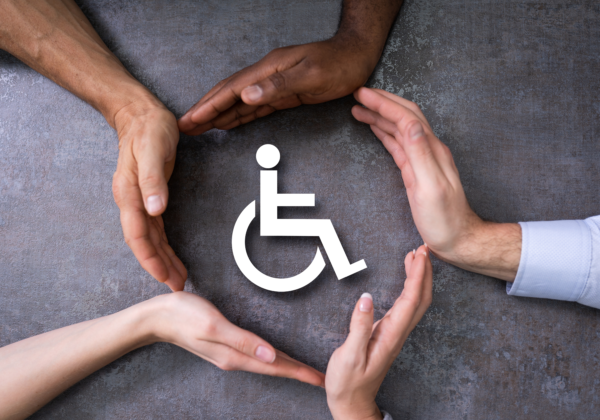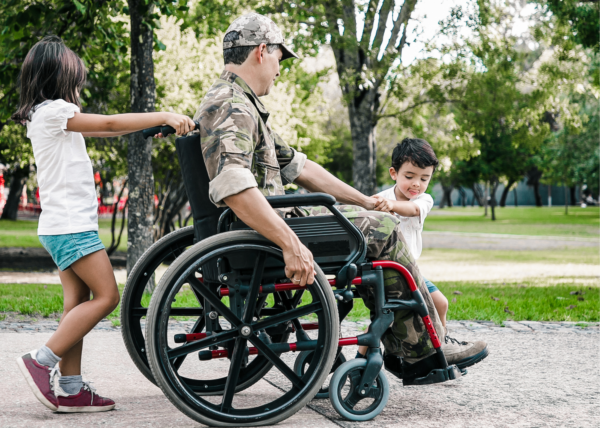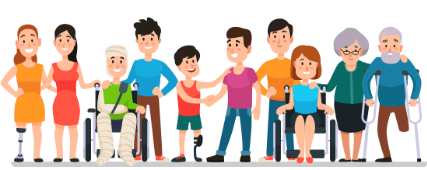Do you know someone with a disability? Do they have children? If so, depending on how well you know them, I am sure you are somewhat aware of the challenges they face in day to day living. In addition, they sometimes face unnecessary battles such as fighting to maintain custody of their children based on their disability status. The 20th century delivered success in many civil rights laws; amongst these, a ruling granting that disabled people have rights.
This ruling was the Americans with Disabilities Act of 1990. Not only did this law mean disabled individuals would be protected from discrimination in the workplace, but also in state and local government, U.S. Congress, public accommodations, commercial facilities, transportation, and telecommunications.

Rights of Disabled Individuals Under Title II of the ADA and Section 504 of the Rehabilitation Act
“Under Title II of the ADA, no qualified individual with a disability shall, by reason of such disability, be excluded from participation in, be denied the benefits of, or be subjected to discrimination in the services, programs, or activities of state and local entities. Section 504 similarly prohibits discrimination on the basis of disability against qualified individual with a disability in programs, services, and activities receiving Federal financial assistance.”
To go further into the ADA and Section 504 in regard to parenting, “qualified individuals with disabilities, including children, parents, legal guardians, relatives, other caretakers, foster and adoptive parents, and individuals seeking to become foster or adoptive parents, are protected from discrimination by child welfare agencies and courts.”
There are two essential elements to Title II of the ADA and Section 504:
Individualized treatment – disabled individuals are to be treated on a case-by-case basis corresponding with facts and objective evidence. This also means persons with disabilities may not be treated on the basis of generalizations or stereotypes.
Full and equal opportunity – disabled individuals will be provided opportunities to benefit from or participate in child welfare programs, services, and activities that are equal to those without disabilities.
“The fundamental right to parent without interference is protected by the U.S. Constitution and balanced by the judicially recognized power of the state to interfere to protect the well-being of its children.”
Despite the Rights Awarded to Disabled Individuals, The Battle Continues
According to a study released around 2012 by the National Council on Disability, it’s estimated that more than six million children in the U.S. have parents with disabilities. A significant amount of these families have experienced issues in maintaining custody of their children. Parents with psychiatric disabilities have a removal rate as high as 70-80%, and those with an intellectual disability range from 40-80%. In custody cases involving a physical disability, 13% have reported discriminatory treatment. There are also extremely high rates of child removal and loss of parental rights when the parent(s) are deaf or blind. Therefore, even though disabled people have rights to raise a family, the barriers still exist between these individuals and areas of society today.
This compilation of statistics is not intended to discourage parents with disabilities, because these rates do not invalidate your rights as parents. Laws differ from federal to state levels, therefore it is deeply important that you familiarize yourself with your state laws. Collaborate with your communities, start petitions, and get involved; these are some of the ways you can hold your local and state representatives accountable, and demand they acknowledge disabled people have rights!

We can all learn something from these families
The world of disabled parenting has been portrayed through a biased lens with blatant disregard to the benefits these individuals have to offer. Children that grow up with disabled parents often learn creative ways to be more independent and how to adapt to their environment. Rather than criticizing their parenting style, or their abilities, we should direct some of that focus to ensuring they receive adequate support from their community and provide resources that respect their circumstances.
The idea that someone’s disability is viewed as a hindrance in parenting is absurd. For cases that involve abuse, these are not referenced throughout this informative and opinion piece. If you are active on social media, I am sure you have seen videos of people with obvious disabilities creating art, building pieces of furniture, playing instruments, and so much more. I once saw a video of a man with no arms painting beautiful portraits of people on the streets; he was using his feet to hold the paintbrush. This man holds more talent in one toe than I do in my two arms, two hands, and 10 fingers.

What can we all do to help?
These families often face challenges and hardships some families cannot relate to. What so many of us fail to realize is that life looks different for all, even for those with similar lifestyles, beliefs, and circumstances; we are all different. Being different does not invalidate one’s purpose. I, personally, hold a strong belief we are all created equally with a uniquely different purpose. We can all do better to lend an ear, as well as our support, to these deserving individuals and families.
We live in a society that teaches children that with the proper mindset and willingness to work hard, they can be anything they put their mind to. We preach to everyone, including the disabled communities, that they can build an empire if they choose to. It only seems right that we extend that same encouragement to the disabled community when it comes to starting a family. If you are worried about safety, provide resources. If you are worried about these individuals being able to physically care for the child(ren), provide resources. Let’s build a community that encourages these families to thrive, rather than just try to survive.
To learn more about the rights of individuals with disabilities, check out the following sources:
Protecting the Rights of Parents and Prospective Parents with Disabilities (ada.gov)
Protecting the rights of parents with disabilities (apa.org)
A Guide to Disability Rights Laws (ada.gov)
Rocking the Cradle: Ensuring the Rights of Parents with Disabilities and Their Children | NCD.gov
Parental Rights & Disabilities – Parental Rights Foundation
Parents With Disabilities And Family Law : NPR
For parents of children with disabilities in school, check out What Are My Parental Rights Under IDEA by our talented SGF blog content writer Ashley Elrod.
upcoming event:






